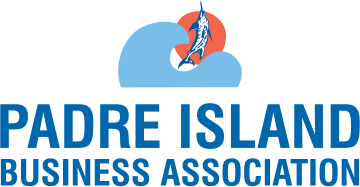BBB Tip: How the military community can avoid scams and fraud
Each year, scammers manipulate millions of American consumers to steal billions of dollars
through various schemes. Federal Trade Commission (FTC) data shows that more than $10
billion was lost to scams in 2023. While many organizations dedicate themselves to
eliminating the substantial impact scams have on the public, the best line of defense comes
down to awareness and avoidance at an individual level.
Scams affect everyone regardless of their age, education, or location. However, certain
groups are more vulnerable to falling for highly customized tactics, the military community
being one of the most targeted. Through various tactics, including impersonating
government agencies, VA programs, or military-friendly employers and schools, military
consumers lost $476 million to scams in 2023. Despite most reports and losses coming from
military veterans and retirees (155,000 reports and $350 million in losses), the median loss
of active-duty personnel was nearly $200 more.
In recognition of Military Consumer Protection Month, Better Business Bureau is working to
raise awareness of some of the most common scams reported to BBB Scam Tracker from
the military community.
Government Impostors
In contrast to the general public, who typically only interact with a government agency a
few times a year, military community members are in constant communication with multiple
agencies. Scammers capitalize on this familiarity to impersonate VA representatives,
military liaisons, or other individuals that a military community member would expect to
interact with. Many of these schemes include official logos, spoofed caller IDs, or threats of
immediate consequences that will affect the target’s benefits, discharge status, or pay
grade.
It is essential to understand how official representatives will communicate with military
community members to avoid these schemes. Many agencies have specific policies that
prohibit them from asking for or providing sensitive personal information except through
secured online portals and systems. No matter the situation, threats of immediate, life-
altering consequences unless a specific task is performed or a fee is paid is a red flag.
Always verify these situations with the appropriate agency by contacting them through a
known and trusted method. A common tactic for government impostors is sharing a copy of
their federal badge to establish credibility, a practice many agencies expressly forbid.
VA Benefits and Sponsored Programs
Serving in the military provides access to many benefits and programs. However, applying
for and receiving some of these benefits can be complicated. Many legitimate, reputable
businesses specialize in guiding military members through the steps to receive benefits,
such as VA home loans, disability, or education – but there are also unethical actors with
more selfish motives. Through unsubstantiated guarantees, emotional manipulation, or
other deceptive practices, these scammers may charge exorbitant fees to apply for free
programs, falsify official documents, or collect personal information that can lead to identity
theft.
While it is essential to seek support when transitioning out of military service, it is even
more important to carefully choose which business or individual to trust with personal
information or to apply for government programs on behalf of the service member.
Contacting the local Veterans Service Officer (VSO) or VA-accredited representative is a
great starting point. These highly knowledgeable individuals can help answer many
questions and steer service members toward the outcome they seek. Be wary of too-good-
to-be-true guarantees or unsolicited contact from anyone who claims to specialize in VA
programs and benefits.
Veteran-friendly Employers or Schools
Moving on to the next adventure after military service is a difficult proposition for many
veterans, some of which have doubts that their experiences and skills will transfer into the
civilian sector. Some may enter the job market, while others take advantage of educational
benefits. In either case, a veteran-friendly culture is important for many individuals.
Unfortunately, scammers know this desire and will develop fraudulent job postings or
educational opportunities to appeal to military veterans specifically. Their aim is to collect
payment for unrecognized certificates or credentials with the promise of job placement,
steal sensitive personal information, or obtain VA benefits information.
Employment scams have become one of the costliest issues people face, both within and
outside the military community. Military consumers lost more than $26 million to these
scams in 2023. It is essential to carefully evaluate an opportunity and be wary if the
entirety of the hiring process is done over text or email. Scammers frequently use remote
working opportunities with high pay and impersonate companies during an employment
scam. If the posting is found on a third-party website, verify it is legitimate by checking the
job board on the company’s official website. Spend time researching educational
opportunities to verify the degree or certificate awarded is recognized by the industry. Check
to see if the institution has a Veteran’s Services office and call them to ensure it is a working
number.
